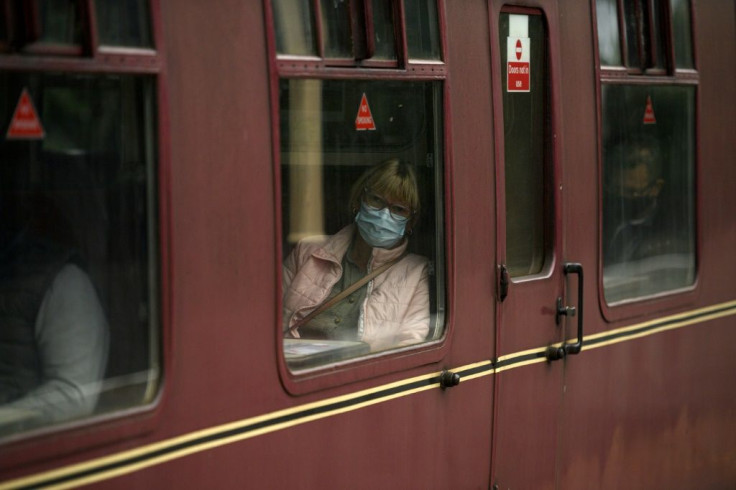Coronavirus Drives Overhaul Of Troubled British Rail Sector
Britain's government on Monday handed further financial support to the country's privatised railway sector badly derailed by the coronavirus pandemic, while also ending a franchise system that existed for nearly a quarter of a century.
While UK train services will continue to be run mainly by private companies, franchising will be replaced by Emergency Recovery Management Agreements (ERMA), the government said after the virus slashed passenger demand by 95 percent.
The Department for Transport said it would continue over the next 18 months to cover losses suffered by private rail operators, extending a system begun following the start of the virus outbreak.
"Ministers today ended rail franchising after 24 years as the first step in bringing Britain's fragmented network back together," the DfT said in a statement.
"The new system will create a simpler, more effective structure and will take shape over the coming months."
It is the first major sector-wide overhaul since British Rail was privatised in the mid-1990s by the Conservative government.
The franchising system has been long-criticised by passenger groups, who accuse private companies of charging excessive fares despite regularly-delayed train services and large state-subsidies.
Rail operators have meanwhile been critical of high costs they must incur under franchising.
The new deal allows for "an early start on key reforms, including requiring operators to co-ordinate better with each other and driving down the railways' excessive capital costs", the DfT added Monday.
Matthew Gregory, chief executive of FirstGroup, which owns four franchises, called for "a more appropriate balance of risk and reward for all parties".
Under privatisation, the taxpayer has been forced to take over control of franchises that ran into financial trouble -- and currently runs two such operators.
Transport Secretary Grant Shapps on Monday said the changes "will keep the best elements of the private sector, including competition and investment, that have helped to drive growth, but deliver strategic direction, leadership and accountability".

Franchising "has seen significant rises in passenger numbers, but this pandemic has proven that it is no longer working", he added.
With Covid-19 decimating passenger demand, as office staff continue to work from home, Prime Minister Boris Johnson's Conservative government has paid out about ?3.5 billion ($4.5 billion, 3.8 billion euros) to support rail operators.
"Until passenger numbers return, significant taxpayer support will still be needed," the DfT said Monday.
Keith Williams, a former British Airways boss commissioned by the government to review the sector, welcomed the new strategy that will see the state paying lower management fees to train operators.
"These new agreements represent the end of the complicated franchising system, demand more from the expertise and skills of the private sector, and ensure passengers return to a more punctual and co-ordinated railway," he said.
Mick Cash, general secretary of the Rail, Maritime and Transport union, said the changes did not go far enough, a message echoed by the main opposition Labour party.
"Public ownership is the only model that works and can steer us through a crisis such as Covid-19," Cash said.
The shake-up comes as Britain looks ahead to two major railway building projects this decade.
Johnson claims that the project -- which is to cost more than ?100 billion funded mostly by the state and take years to build -- will play a part in helping the country get back on its feet following the pandemic.
Prior to the virus outbreak, Johnson saw HS2 as a key infrastructure project aimed at helping drive Britain's post-Brexit economy.
Meanwhile, London's new "Elizabeth" railway connecting the capital's centre with Heathrow airport, is facing additional costs and further delay on fallout from the pandemic, operator Crossrail said last month.
© Copyright AFP 2024. All rights reserved.





















